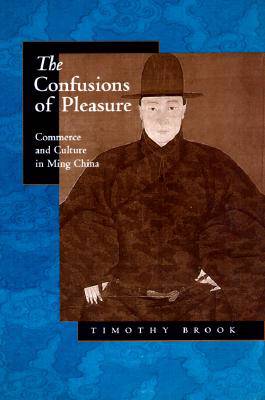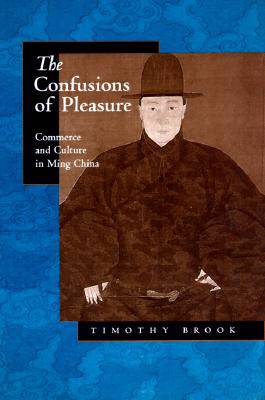
- Afhalen na 1 uur in een winkel met voorraad
- Gratis thuislevering in België vanaf € 30
- Ruim aanbod met 7 miljoen producten
- Afhalen na 1 uur in een winkel met voorraad
- Gratis thuislevering in België vanaf € 30
- Ruim aanbod met 7 miljoen producten
Zoeken
€ 50,95
+ 101 punten
Omschrijving
The Ming dynasty was the last great Chinese dynasty before the Manchu conquest in 1644. During that time, China, not Europe, was the center of the world: the European voyages of exploration were searching not just for new lands but also for new trade routes to the Far East. In this book, Timothy Brook eloquently narrates the changing landscape of life over the three centuries of the Ming (1368-1644), when China was transformed from a closely administered agrarian realm into a place of commercial profits and intense competition for status.
The Confusions of Pleasure marks a significant departure from the conventional ways in which Chinese history has been written. Rather than recounting the Ming dynasty in a series of political events and philosophical achievements, it narrates this longue durée in terms of the habits and strains of everyday life. Peppered with stories of real people and their negotiations of a rapidly changing world, this book provides a new way of seeing the Ming dynasty that not only contributes to the scholarly understanding of the period but also provides an entertaining and accessible introduction to Chinese history for anyone.
The Confusions of Pleasure marks a significant departure from the conventional ways in which Chinese history has been written. Rather than recounting the Ming dynasty in a series of political events and philosophical achievements, it narrates this longue durée in terms of the habits and strains of everyday life. Peppered with stories of real people and their negotiations of a rapidly changing world, this book provides a new way of seeing the Ming dynasty that not only contributes to the scholarly understanding of the period but also provides an entertaining and accessible introduction to Chinese history for anyone.
Specificaties
Betrokkenen
- Auteur(s):
- Uitgeverij:
Inhoud
- Aantal bladzijden:
- 345
- Taal:
- Engels
Eigenschappen
- Productcode (EAN):
- 9780520221543
- Verschijningsdatum:
- 1/09/1999
- Uitvoering:
- Paperback
- Formaat:
- Trade paperback (VS)
- Afmetingen:
- 156 mm x 230 mm
- Gewicht:
- 544 g

Alleen bij Standaard Boekhandel
+ 101 punten op je klantenkaart van Standaard Boekhandel
Beoordelingen
We publiceren alleen reviews die voldoen aan de voorwaarden voor reviews. Bekijk onze voorwaarden voor reviews.











